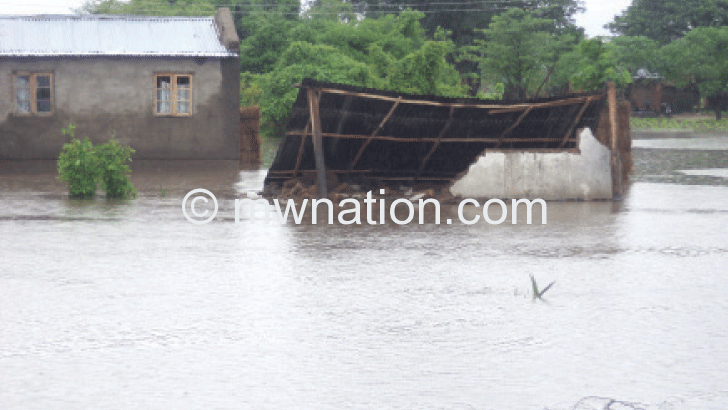Climate Change impacts worse than expected—IPCC
The record-breaking storms, forest fires, droughts, coral bleaching, heat waves and floods around the world will get worse if rapid, far-reaching and unprecedented changes in all aspects of the society are not taken to limit global warming to 1.5°C, according to the Intergovernmental Panel on Climate Change (IPCC) report released today in Incheon, South Korea.

According to Panmao Zhai, co-chairperson of IPCC Working Group I, one of the key messages that come out very strongly from the report is that the world is already experiencing the consequences of 1°C of global warming through more extreme weather, rising sea levels and diminishing Arctic sea ice, among other changes.
Malawi has not been spared from the consequences of global warming. The department of Climate Change and Meteorological services has already predicted that the country will experience El Nino which will bring in normal to above normal rains in some parts of the country.
The report called; “Special Report on Global Warming of 1.5°C”, examined more than 6,000 studies and highlights a number of climate change impacts that could be avoided by limiting global warming to 1.5ºC compared to 2ºC or more such as the benefits to people, natural ecosystems which go hand in hand with ensuring a more sustainable and equitable society.
Limiting global warming, according to the report, would also give people and ecosystems more room to adapt and remain below relevant risk thresholds, said Pörtner.
The report also examines pathways available to limit warming to 1.5ºC, what it would take to achieve them and what the consequences could be.
Gloomy as the IPCC report may seem, all seems not lost as it also highlights that actions to limit global warming are already underway around the world, but Valerie Masson-Delmotte, research director at the French Alternative Energies and Atomic Energy Commission, who is also one of the authors of the report says the actions need to be accelerated.
“Limiting global warming to 1.5°C would require rapid and far-reaching actions in land, energy, industry, buildings, transport, and cities. Global net human-caused emissions of carbon dioxide (CO2) would need to fall by about 45 percent from 2010 levels by 2030, reaching ‘net zero’ around 2050. This means that any remaining emissions would need to be balanced by removing CO2 from the air,” said Masson-Delmotte.
The Special Report on Global Warming of 1.5ºC was approved by the IPCC on Saturday in Incheon, Republic of Korea. It will be a key scientific input into the Katowice Climate Change Conference in Poland in December this year, when governments will review the Paris Agreement to tackle climate change.
Ninety-one authors and review editors from 40 countries prepared the IPCC report in response to an invitation from the United Nations Framework Convention on Climate Change (UNFCCC) when it adopted the Paris Agreement in 2015.
“This report gives policymakers and practitioners the information they need to make decisions that tackle climate change while considering local context and people’s needs.
The IPCC is the leading world body for assessing the science related to climate change, its impacts and potential future risks, and possible response options.
The report was prepared under the scientific leadership of all three IPCC working groups. Working Group I assesses the physical science basis of climate change; Working Group II addresses impacts, adaptation and vulnerability; and Working Group III deals with the mitigation of climate change.
The Paris Agreement adopted by 195 nations at the 21st Conference of the Parties to the UNFCCC in December 2015 included the aim of strengthening the global response to the threat of climate change by “holding the increase in the global average temperature to well below 2°C above preindustrial levels and pursuing efforts to limit the temperature increase to 1.5°C above pre-industrial levels.





